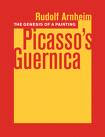George MacDonald writes, “One difference between God’s work and man’s is, that while God’s work cannot mean more than he meant, man’s must mean more than he meant … A man may well himself discover truth in what he wrote; for he was dealing all the time with things that came from thoughts beyond his own.” (Macdonald, A Dish of Orts, 320 – 321)
What does it mean for a work of art to go beyond the author’s intentions? Is a work of art simply the product or embodiment of the artists thoughts, feelings, mental states unless otherwise inspired? Is the reason that artists are often curious or puzzled about their own creations that they have been inspired by something beyond them? Do we have here a case where the inexplicable is simply filled in by the divine?
To say that “God’s work cannot mean more than he meant” is deceptively simple. We feel, at a gut and intuitive level, that this is a fitting description of God’s creative powers. Surely if anyone can express himself perfectly it is God, right? And yet, if we dig too deeply, we find problems. If what God “meant” before creating is the same as what creation means, how can time and space have any relevance to the meaning of creation? Everything in the created world is essentially reducible to what God “meant.” In this view, the particularity of each created thing, as well as the history of creation, appears irrelevant to the meaning of creation. God’s activities in creation could be construed, therefore, as God’s continuing attempt to ensure that creation means what he initially meant. This suggests a relationship between God and his creation that is unilateral: God responds primarily to his initial desires for creation without taking into consideration changing situations within his creation.
To say instead that God’s work does mean more than he meant, opens up different possibilities. The most obvious way in which creation can mean more than God initially meant is that creation is capable of generating its own meaningfulness. The free response of human beings to God and his creation participates in God’s creative activity either advancing or obstructing God’s redemptive movement in history. This is not to say that humans bring about God’s redemption and the New Creation (which is the meaning toward which God’s creative activities are striving), but that humans participate in God’s redemption by moving along side Him. God welcomes human beings, as representatives of his grace within creation, based on trust rather than control. God’s creative activities are inherently risky because He chooses to create something ‘other’ than himself, and to be in collaboration with that ‘other’ to determine the final outcome of His creativity.
Describing God’s creativity as being in collaboration presents all sorts of theological problems. Is God’s sovereignty somehow limited over creation? Can God become the victim of His creation? How does one articulate the freedom of human beings? Does God learn about His creation as its meaning unfolds to Him? Can God be surprised? While these problems and questions are serious, it seems to me that they are the inevitable problems of defining a loving relationship between God and His creation. That God loves his creation is impossible to refute from a Christian perspective. And so the question becomes, what does it mean to love someone else? Surely part of loving someone else is recognizing that the beloved, as well as the lover, brings something genuine and original to the relationship. It is from the perspective of the love of God that questions about God’s creativity must be explored.
Subscribe to:
Post Comments (Atom)




No comments:
Post a Comment